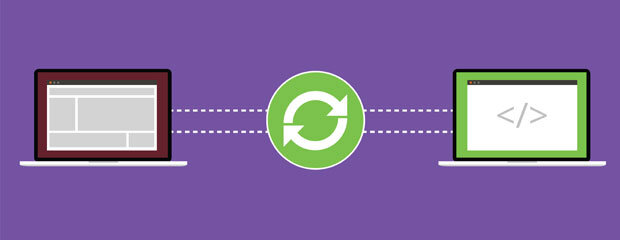Data integration has always been a core concept of hotel property management systems (PMS). From front desk to housekeeping to accounting, the PMS connects hotel departments and serves as a central point of control, automating processes and eliminating the need to manually consolidate information across operations.
But most hotels work with numerous key tech systems to serve their guests. In addition to the PMS, you are probably using online distribution channels, a payment processing system, and an electronic room access system at the least. Those systems all rely on some of the same reservation and guest data.
If those other core hotel systems are not connected to your PMS, you and/or your staff have to double-handle reservation data, manually duplicating information. Not only is this time consuming, but it’s prone to human error, resulting in inconsistent and inaccurate data that can negatively impact the guest experience and your bottom line.
The answer? Hotel software integration.
What is software integration?
Software integration automates the transfer of relevant data between two separate systems, for example, your PMS and your payment gateway. It does this through an automated interface that essentially allows the two systems to talk to each other. Some integrations allow a two-way conversation, whereby each system sends and receives requested data from the other. Other integrations simply allow a one-way conversation, where one system only sends information and the other only receives.
Either way, hotel software integrations save lodging operators time and improve data accuracy by breaking down data barriers and automating data flows.
Advantages of software integration
Automating the transfer of requested data between systems, software integration eliminates the need to manually duplicate data and facilitates the automation of routine administrative processes. In other words, it saves time and decreases the chance of human error for more efficient and effective operations. But that’s not all.
Hotel tech is moving faster and faster, especially since Covid. Adoption of guest self-service applications and cloud technology that allows hoteliers to do more with less has propelled a wave of further innovation—and it’s exciting! Going forward, system integration is an integral part of staying current and competitive by harnessing your data to work for you, especially as operations become more reliant on technology. The better integrated your data is, the more visibility and control you have of your business and the better you can know and serve your guests.
Software integration empowers lodging operators to design their ideal tech stack to best suit their unique operations. Instead of being tied to one provider’s prescribed solutions, properties are free to choose the solutions that make up their whole tech ecosystem—their preferred property management system, online distribution channels, revenue management system, etc.—all working together to optimize efficiency and revenue. For this reason, it’s important to choose a property management system that is well integrated with leading software solutions across the industry.
Integration considerations
Software integration today is much easier and cheaper with cloud hotel technology than it was with the clunky legacy systems we’re leaving behind. But there is usually still a cost. Monthly fees generally apply and setup fees sometimes do too, depending on the work involved in connecting the two systems. Therefore, integrating your PMS with your other hotel systems should be assessed on a case by case basis to ensure the benefit outweighs the cost.
For each integration, ask yourself:
- What, exactly, does this particular integration do?
This can vary not only by type of integration, but depending on the specific products involved. An integration between one CRM and PMS may achieve more (or less) automation than an integration between a different CRM and PMS. - How much does the integration cost?
Are there setup and/or monthly fees? - How will the integration benefit operations?
Will it save time/money? Improve transparency? Enhance the guest experience? - Will it be worth it?
Will the time saved or revenue generated outweigh the cost of the integration?
Types of PMS Integrations
Here’s a list of some common PMS integrations along with brief descriptions of what they do.
Booking Channel / Channel Management Integrations – Two-way integration between your PMS and third-party booking channels (GDS, OTA and metasearch channels) or a channel manager is a big time saver and helps to maximize online revenue and minimize double bookings.
The integration allows you to control your GDS/OTA inventory, rates and reservations from your PMS, instead of having to log in to various channel extranets to update inventory manually. The PMS pushes designated inventory, rates and availability to the booking channel, and reservations made through connected channels are automatically imported into the PMS. Availability adjusts accordingly across all connected channels.
Payment Gateway Integrations – Reducing the steps required to process card payments and eliminating keying errors, a payment gateway integration securely facilitates payment card acceptance through the PMS. Payment information entered into the booking form is automatically sent to the payment processing network and approved transactions automatically posted in the PMS in real time. A payment gateway integration with your PMS is necessary for accepting payments through your website booking engine and streamlines the check-in/out process at the front desk.
Room Access System Integrations – From keycard solutions to mobile keys, integrating your PMS with your room access system speeds up the check-in process and simplifies access management.
A keycard integration allows keycards to be encoded and managed via the PMS, which automatically sends relevant reservation data (room number, check-in/check-out dates, etc.) to the electronic lock system, so your front desk staff don’t have to key it in manually.
Integrating your PMS with a keyless access solution (mobile key or keypad locks) automates key delivery to the guest’s mobile device upon check-in. The PMS automatically sends reservation data to your keyless access solution, which then generates and sends a mobile key or keycode to the guest, automatically activating it upon check-in and deactivating it upon check-out.
POS System Integrations – Integrating your PMS with your point-of-sale (POS) system automates the process of posting restaurant tickets or shop/spa charges to reservations, improving accuracy and efficiency. When a guest wants to charge a meal to their room, for example, the POS system queries the PMS in real time to verify guest status, room number and credit authorization limit and automatically posts the charge to the reservation folio.
Revenue Management System Integrations – Direct integration between your PMS and RMS (revenue management system) improves forecasting accuracy, pricing and inventory control. The two-way integration enables the PMS to push rate and availability data to the RMS at a transactional level for more accurate pricing recommendations. Accepted rate recommendations are automatically sent from the RMS to the PMS (instead of you having to update them manually).
CRM / Guest Engagement Platform Integrations – An integration between a customer relationship management (CRM) system or guest engagement platform and the PMS helps lodging operators get to know their guests and deliver highly targeted and automated guest messaging that drives more revenue. Through the integration, the PMS shares live reservation information with the CRM for guest profiling and segmentation purposes and to automate guest communications sent from the CRM based on reservation data from the PMS.
Reputation Management System Integrations – Reputation management systems help properties manage their online reputation and social customer service by monitoring social media and increasing review volume, among other important functions. When your PMS integrates with your reputation management system, it automatically sends reservation/guest information to the reputation management system to automate the process of requesting and posting guest feedback via electronic post-stay surveys.
Mobile Messaging Application Integrations – If you are working with a guest messaging platform to communicate with guests via SMS or instant messaging and/or to facilitate self-check-in, routine text messages can be automated through an integration with your PMS. Through the integration, the PMS sends live reservation information to the guest messaging platform to ensure perfectly timed and personalized communications.
In-Room Entertainment System Integrations – Modern in-room entertainment systems afford guests an interactive media experience, allowing them to access content from their preferred streaming apps (like Netflix, YouTube and Spotify) on the guestroom TV. Integrating your in-room entertainment system or casting solution with your PMS results in more secure service through automated guest authentication that ensures only checked-in guests can connect and prevents casting to the wrong room. In the case of more traditional in-room entertainment systems, integration enables automatic posting of pay-per-view and internet charges to reservations.
Energy Management System / Smart Room Tech Integrations – Integrate your energy management system with your PMS to pre-condition guest rooms for guest check-in and automatically switch to energy-saving mode upon check-out. Such automation not only saves time but money too, as lights, heating and air conditioning are turned on and off in a timely fashion, conserving energy even further.
Breaking down data barriers, hotel software integration empowers lodging operators to drive even more efficiency, revenue and innovation. The future is exciting—and with modern cloud hotel software, the sky’s the limit! Partner with proven, well-integrated solutions like WebRezPro Property Management System to future-proof your property. You don’t have to be the middleman between your hotel systems anymore; WebRezPro offers over 125 established integrations (and the list is always growing!) to take your operations to the next level.
Editor’s note: This post was originally published August 2014 and updated September 2022.


